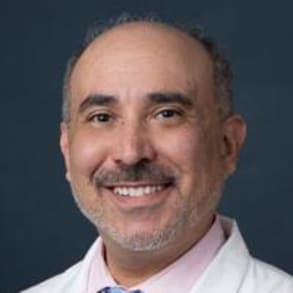Geriatrician Peter Abadir discusses a manuscript published in the journal Nature Aging highlighting the emerging concept of the intersection of physical and cognitive decline in the population of older adults and key areas of agreement and confusion in cognitive frailty research. The lack of consensus on the definition and diagnostic criteria of cognitive frailty makes it difficult to identify and manage patients effectively in clinical settings. His work aims to stimulate further discussion and research in order to better understand cognitive frailty and better serve older patients.
Hello, I'm Peter Abair, an Associate Professor of Geriatrics Medicine. Imagine this in clinical based studies, the prevalence of cognitive frailty among older adults ranges from 11 to 22%. This emerging concept which intersects physical frailty with cognitive impairment. It is not just a medical condition but a growing public health concern. Today, I'd like to share some insights from our work that are particularly relevant to my fellow clinicians. Our research recently published in nature aging explores this complex condition. Cognitive frailty is defined as the simultaneous presence of physical frailty and cognitive impairment without full blown dementia. In our older population, physical frailty is defined by criteria like unintentional weight loss, exhaustion, muscle weakness, slow walking pace, and low physical activity, cognitive impairment. On the other hand, is marked by a decline in cognitive functions such as memory and executive functioning without meeting the criteria for dementia. One of the challenges we face is the lack of consensus on the definition and diagnostic criteria for cognitive frailty. This makes it difficult to identify and manage effectively in clinical settings. Our manuscript highlights key areas of agreement and confusion in cognitive frailty research. We examine the complex interplay between physical frailty and cognitive impairment and how this impacts our patients for clinicians. Understanding cognitive frailty is crucial. It helps us identify patients at a higher risk of developing dementia. And it also allows us to tailor our approach to their care. Our work aims to stimulate further discussion and research in this area by fine tuning our understanding of cognitive frailty, we can enhance patient care and potentially delay or even prevent the progression of this condition. Thank you for joining me today. As we continue to explore the complexities of cognitive frailty. It is important to remember the holistic patient centered care and geriatrics. When we think about the person as a whole, we can make a significant difference in the lives of our older patients.



